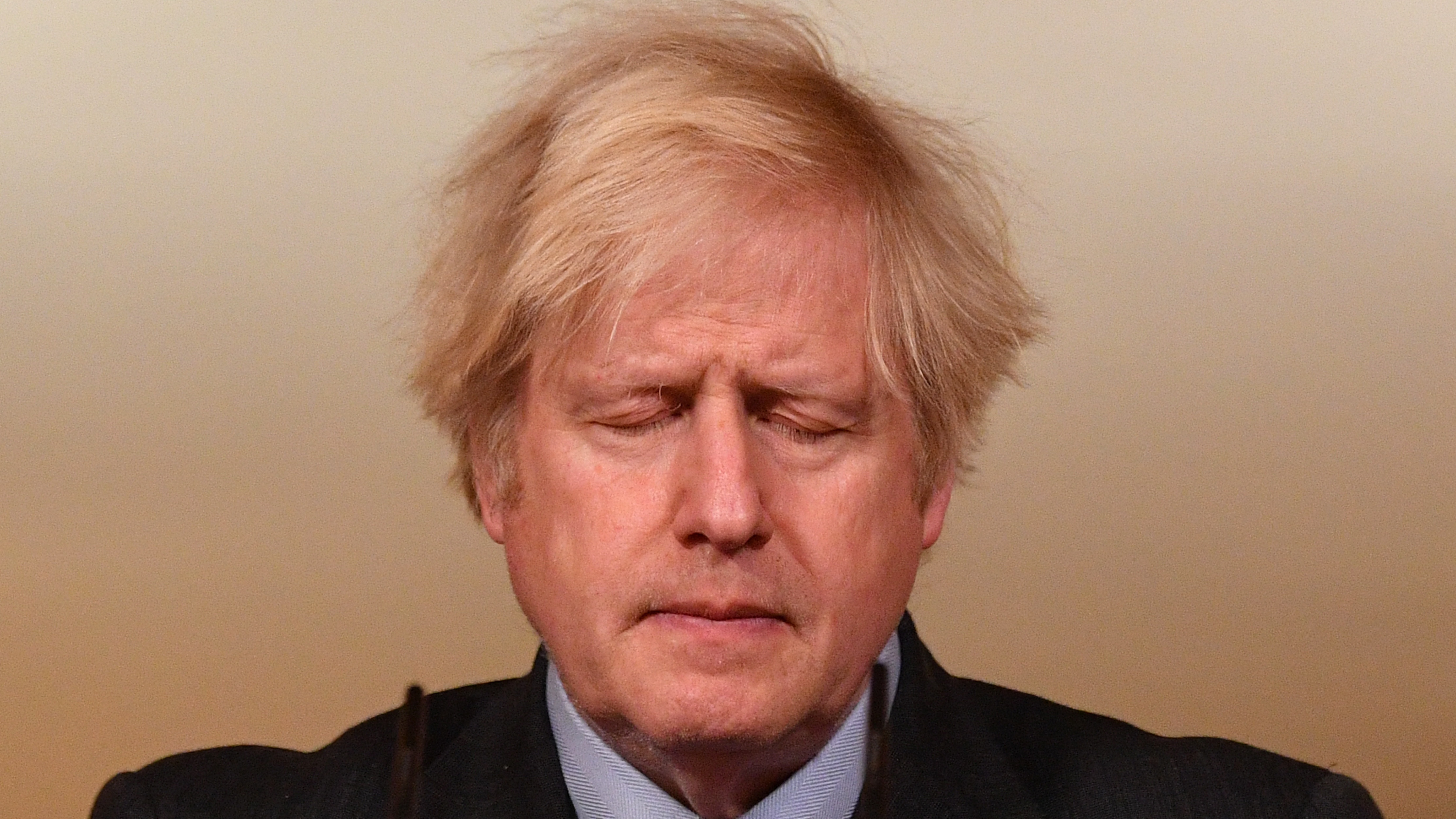Will 100,000 coronavirus deaths sink Boris Johnson?
UK among highest Covid death rates in the world - but vaccinations could save the PM

A free daily email with the biggest news stories of the day – and the best features from TheWeek.com
You are now subscribed
Your newsletter sign-up was successful
In normal times, presiding over a death toll of 100,000 people might have ended a prime minister’s career - and yet Boris Johnson’s downfall seems far from inevitable.
He said yesterday he was “deeply sorry” for the loss of life and insisted that he and his government “did everything we could” to avoid it.
But he “declined to tackle the question” of how many deaths might have been prevented, The Guardian reports, instead focusing on the need to “remember those that we have lost and be vigilant in the national effort to stay at home, protect our NHS and vaccinate Britain”.
The Week
Escape your echo chamber. Get the facts behind the news, plus analysis from multiple perspectives.

Sign up for The Week's Free Newsletters
From our morning news briefing to a weekly Good News Newsletter, get the best of The Week delivered directly to your inbox.
From our morning news briefing to a weekly Good News Newsletter, get the best of The Week delivered directly to your inbox.
Britain’s successful vaccine rollout may in fact turn out to be Johnson’s saving grace. As Tom McTague writes in The Atlantic: “The country’s record in saving lives has been one of abject failure, but its vaccination record is anything but.”
‘Learn the lessons’
In a “very sombre press conference”, Johnson last night came the closest he has so far come to “talking about taking responsibility for the high death toll”, The Spectator’s Isabel Hardman writes.
But while the prime minister’s contrition “might work as a holding line”, the public inquiry into the pandemic “will examine the speed with which he took decisions [and] whether he treated it with the seriousness it merited from the outset”, Hardman adds.
A free daily email with the biggest news stories of the day – and the best features from TheWeek.com
The i’s policy editor Jane Merrick notes that “there are a number of moments... over the past year where, it could be argued, opportunities to take action were missed and some of the more than 100,000 lives could have been saved”.
In June, for example, Professor Neil Ferguson of Imperial College told a committee of MPs that deaths during the first peak could have been halved if the UK had locked down a week earlier.
Similarly, scientists on the Scientific Advisory Group for Emergencies recommended a “circuit breaker” lockdown on 21 September to quell spiralling infections, “but this was ignored by ministers”, Merrick adds.
Johnson last night said that “we must promise to learn the lessons of what went wrong and build a more resilient country”, adding: “That day will come and we will get there together.”
Blame vs. credit
Despite the tremendous human cost of the pandemic, Johnson “is a master politician who has spent a career defying the usual rules of political gravity”, says The Atlantic’s McTague.
Johnson has a track record of “avoiding blame for his failures [and] being forgiven for errors of judgment that might have been career-ending for another leader”, he adds, meaning that the successful vaccine rollout may yet save his premiership.
If this seems far-fetched, the message coming from both Labour and Conservative strategists ahead of May’s local elections lend it some credibility.
Senior Tories “expect an uplift in Johnson’s popularity due to the success of the vaccine programme”, HuffPost executive editor Paul Waugh reports, especially “as it looks likely to open the way to a gradual easing of lockdown restrictions in the spring”.
Likewise, “Labour is braced for the first impact” of the vaccination campaign to hit ahead of the local vote, he adds, with “the success of the vaccine rollout so far appear[ing] to have changed some of the calculations” around the prime minister’s popularity.
Latest YouGov polling shows that the Conservatives still lead Labour, with 39% of the electorate backing the Tories compared to 38% who would vote for Keir Starmer’s Labour.
And that could be compounded as “by the summer, Britain may have a good story to tell”, McTague says, one that somewhat nullifies the memory of 100,000 deaths.
Rather than the country that far outstripped its neighbour’s death rates, the narrative may be one of “a country that came together in its hour of crisis to vaccinate the elderly and the vulnerable... using British-made medicines, delivered by its greatest institution, the National Health Service”.
Joe Evans is the world news editor at TheWeek.co.uk. He joined the team in 2019 and held roles including deputy news editor and acting news editor before moving into his current position in early 2021. He is a regular panellist on The Week Unwrapped podcast, discussing politics and foreign affairs.
Before joining The Week, he worked as a freelance journalist covering the UK and Ireland for German newspapers and magazines. A series of features on Brexit and the Irish border got him nominated for the Hostwriter Prize in 2019. Prior to settling down in London, he lived and worked in Cambodia, where he ran communications for a non-governmental organisation and worked as a journalist covering Southeast Asia. He has a master’s degree in journalism from City, University of London, and before that studied English Literature at the University of Manchester.